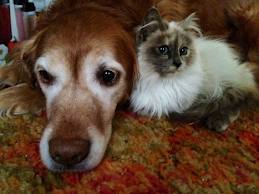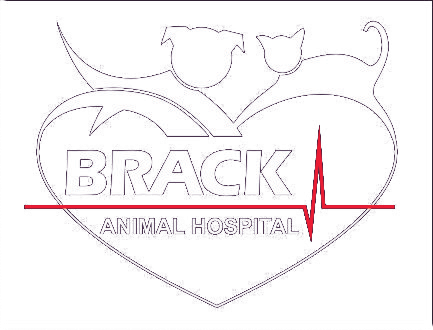
Celebrating Seniors
Age is not a disease! But just as women over the age of forty require more frequent mammograms and men have regular prostate exams, our senior pets also have special needs. We accept that our pet’s age at a rate of 5-7 “human years” for one “pet year”. What we often fail to recognize is that this means that diseases progress 5-7 times faster than in people. We recommend that all pets over 8 years of age have routine blood tests and examinations to search for age-related conditions such as cancer, diabetes, kidney and liver disease before it’s too late.
Use this chart to determine your pet’s approximate age in “human years”.
|
Why is preventative health care so important for senior pets?
It is important to recognize that Senior Pets have different medical, nutritional and emotional needs than adult pets. By diagnosing diseases early, we can often prevent the devastating progression that leads to premature debilitation and death.
What types of testing is recommended for senior pets and how often?
Senior pets should have a physical examination every 6 months. The early signs of problems such as cancer, heart disease, arthritis, and other conditions can be detected. During the visit blood tests should be performed to screen for liver, kidney, and pancreatic diseases, diabetes, anemia, leukemia, Cushing’s disease, evidence of cancer, etc. Early detection of disease is key as many pets will not show symptoms of disease until it has significantly progressed.
Does my pet require a different food now that he/she is a senior?
Yes! We recommend a specially formulated diet for all patients “over 8 years of age”. These diets are recommended based on your pet as an individual. We take into consideration your pet’s body condition and to aid in the management of other specific medical conditions.
Can pets develop “Alzheimer’s Disease” (Dementia)?
Yes! Older pets need more interaction and affection than adult pets. They must also be closely monitored for changes in their behavior. Older pets are at risk for developing Cognitive Dysfunction Syndrome (CDS), a form of senility or dementia. Phobias, fears and house soiling are also common in older pets. If your older pet experiences any of these problems, there is often medical help available.
For more information on Senior Pet Care click on the following link: http://www.veterinarypartner.com/Content.plx?P=A&S=0&C=0&A=2037
